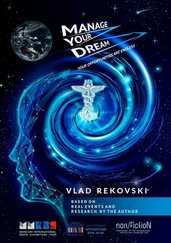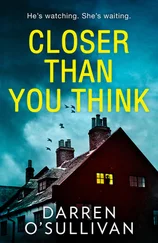So she ate it all. The egg first, in one briny mouthful, then she peeled the salmon off the platter and dropped slices into her mouth before stabbing her finger into a lump of butter and licking it clean.
Astrid ate magnificently, bits of everybody’s breakfast, and then the fruit salad. It would be over a year before the hydroponic garden on the Damocles yielded any fruit, so she devoured a whole box of cherries and spat the stones out like tiny bones sucked clean of marrow. Grapes, a generous helping, and then mango that was soft as butter inside, golden as a slice of the sun.
Time slipped by. As she ate, the sky outside grew lighter and the rain began. The racing in her heart only made the stolen feast even richer, sweet with abandon.
There was a noise outside, and Astrid froze midway through tearing apart a crackling loaf of bread. The wind, she wondered, or a security guard making his rounds outside?
Another sound. The door to the refectory slid open, lights flickered on and flooded through to the pantry, where Astrid crouched like a thief.
She was holding her breath, fighting to keep as still as possible though her chest shuddered against the hollow thumping of her heart.
With black terror, she looked around at the remains of her meal. The floor was littered with shreds of tin foil and cling film and a cairn of cherry stones, and a little blizzard of breadcrumbs drifted around her. In the glacial light of the fridge she saw herself, in a nightdress, her fingers stained black by cherries, hair unbrushed, on her knees amongst the mess. The food in her stomach turned, curdled into a sudden shameful awareness of her animal self.
What would she say?
She pictured her sister’s nose wrinkling with disgust. And then the fear, again. Would she be punished for stealing? She wasn’t supposed to be out of bed before the morning bell. Her mind flitted naturally to the worst thing imaginable: being kicked off the programme, convicted, publicly shamed.
She dropped the bread and darted behind an open door into a shadowed corner of the pantry, holding her breath and praying not to be found.
Her ears pricked up a minute later as the sound of footsteps echoed off the walls. She tried to imagine who might be downstairs so early. One of the cooks with their white hairnets? A security guard who’d heard a sound in the kitchen and come to investigate? The surly dietician? Astrid spotted her sometimes, roaming about the refectory with a clip-board.
Her stomach snarled.
‘Hello?’ came a voice.
Astrid said nothing, tried to keep still.
But the sound of steps grew louder, marched towards her, slammed the cupboard door back.
‘Astrid!’
She yelped and leapt back. Then looked up to find a familiar face under a storm of red hair.
‘Poppy?’ she gasped, almost with relief.
‘What are you doing?’
Astrid glanced around at the pantry, the cupboards she had thrown open, the detritus on the floor. Her cheeks burned.
‘I – I…’ Astrid fumbled for an excuse as Poppy looked about in amazement, and horror. ‘Please don’t tell anyone.’
It was then she noticed that her friend’s eyes were bloodshot and shadowed.
‘Are you okay?’ she asked. Poppy shook her head, choking back a tear. ‘What is it? What are you doing down here?’
‘I came to look for you,’ she gasped, wiping her nose with the back of her hand. Sniffing. ‘You said you were just going to the bathroom and I thought… I need to talk to someone.’
‘Then talk.’ Astrid closed the fridge and they stepped out of the pantry and into the refectory, sat on one of the plastic benches on the nearest table.
Poppy pulled her retainer out of her mouth and placed it in front of her, silver strings of saliva sliding off her gums.
‘You won’t tell anyone?’ she asked. Astrid shook her head. ‘I was up all night. And I’ve been thinking. I can’t go.’
‘What?’ The words knocked the breath from Astrid’s throat. Poppy nodded.
‘I’m… I know the rest of you don’t understand this… but… I’m afraid. And maybe I’m not ready.’
‘For what?’
‘For all of it.’ Poppy’s pale fingers were trembling. ‘This whole thing has happened so quickly. It feels like yesterday that we were selected and now here we are. Leaving tomorrow. I’m not ready for it, or to spend twenty-three years travelling to a planet that no one has ever been to. And the other stuff too… never having children of my own, and—’
‘Look,’ Astrid interrupted, ‘you just have cold feet. That’s all.’
‘Twenty-three years, Astrid.’ Poppy’s eyes widened as if she could see every hour they would surrender to the darkness. ‘And—’ she lowered her voice. ‘Do you always believe them, about Terra-Two?’
‘What do you mean?’
‘That it will be a paradise. That it’s as beautiful as they say it is. Like the pictures.’
‘Of course, I do. W-why wouldn’t I?’
‘I don’t know.’ Poppy shrugged, ‘I imagine reaching it sometimes and finding that it’s as scarred and desolate as the face of the moon. I think I’d die of disappointment.’
‘You just have cold feet,’ Astrid said again, gripping Poppy’s arm, willing her to stop.
‘Do I?’ she asked.
‘I believe everything,’ Astrid said. ‘This is an amazing adventure, and we’re the first. Like Armstrong and the moon or Igor and Mars. And it will go by quickly. All the years. Like this –’ She snapped her fingers.
They both looked up. They’d only just noticed the sound of the rain, the heavy way it was pounding the copper roof of the refectory. Behind Poppy was a glass wall, and a door leading to the courtyard. The sky was twice as bright as it had been just five minutes ago, and the dawn made the clouds light up in peach and bruise-purple. Astrid had never seen rain like it before, the kind that reflected the sun and filled the air with a flaxen light. She might even have called it beautiful if the word hadn’t curdled in her stomach.
‘That’s why you deserve to go,’ Poppy said, turning back. ‘You and your sister and Ara. The boys. They made a mistake with me.’
‘Don’t say that.’
‘No…’ She lowered her eyes, ‘It’s true. I came because I was running away. And… you want to know something?’
‘What?’ asked Astrid.
‘ Moy sekret ,’ she said. Astrid recognized the Russian from her GCSE classes. Poppy had an irritating habit of flaunting her language skills at inappropriate times. ‘I lied in the personality tests.’
Astrid gazed at her in confusion.
‘It’s quite simple, actually,’ Poppy continued, ‘they have specific select-out and select-in criteria. You have to be sociable enough to thrive as a member of a multi-disciplinary team, but introverted enough to do well in the isolated environment of outer space, so you—’
‘It’s not possible to cheat those tests,’ Astrid said. ‘They control for lying. Don’t you think everyone lies? Or tries to? No one’s going to say they’re frightened of the dark or enclosed spaces. Everyone ticks “strongly agree” when they read “I function well in a team.” But they chose you for a reason. You’re so good at—’ Astrid fumbled for a moment. ‘…communication. And… public relations. The crowds love you. You wouldn’t have made it through if they didn’t know you were right for this mission, Poppy.’
Poppy looked up again at her friend with desperate eyes. ‘You think?’ she almost pleaded.
‘Of course.’
Poppy’s talent with languages had long made her the envy of the other students at Dalton. As part of their training, all astronaut candidates were required to display some proficiency in Russian, as the UKSA had strong links with the Russian Space Agency, Roscocosmos. As her classmates took their first clumsy halting steps into the language, Poppy was reading Анна Каренина and conducting happy conversations with their engineering teacher. Although she scored below average in almost every other subject, Poppy had excelled in computer science and robotics because she picked up programming languages with the ease of a stamp collector.
Читать дальше






![Theresa Cheung - The Dream Dictionary from A to Z [Revised edition] - The Ultimate A–Z to Interpret the Secrets of Your Dreams](/books/692092/theresa-cheung-the-dream-dictionary-from-a-to-z-r-thumb.webp)





